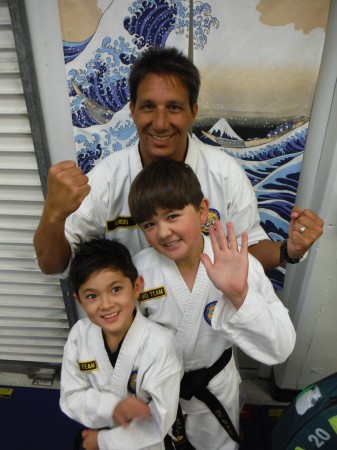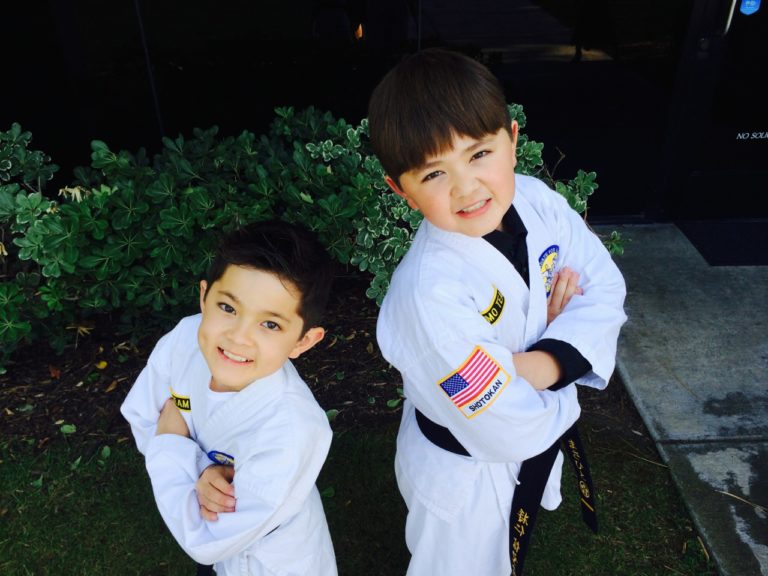In front of a standing-room only crowd, Ian and Micah Rogers recently kicked, punched and sparred their way toward a black belt in karate.
Attaining a black belt would be a proud achievement for anybody. But for the two brothers, the accomplishment is even more significant given their rare form of muscular dystrophy, diagnosed by CHOC metabolic disorders specialists about eight years ago.
“People might think that because I have muscular dystrophy, I cannot do anything,” Micah, 10, wrote in an essay. “But I proved them wrong. … Earning my black belt gives me hope that I can be tougher and could accomplish lots of stuff even though it’s harder for my body.”
Micah was first diagnosed after a series of blood tests and muscle biopsies. By his 12-month doctor’s appointment, his doctor suspected something was wrong and he was ultimately diagnosed with muscular dystrophy.
Micah’s mother, Akemi, knew his older brother, Ian, had the same condition. As a baby, Ian had difficulty holding his head up while on his stomach. He was quickly passed by his friends while going up stairs, and he got tired after passing just a few houses on his tricycle. Following Micah’s diagnosis, Ian also tested positive.
Further genetic testing by Dr. Jose Abdenur, division chief of metabolic disorders at CHOC, refined the boys’ diagnosis to a type of Fukuyama congenital muscular dystrophy. Fukuyama CMD is a progressive degenerative disease that affects the brain, eyes and muscles. Because the Rogers boys were the first to be discovered with this specific condition, they have an unknown prognosis.

“In the beginning, I was very afraid,” Akemi says. “I wasn’t sure if they were going to walk next month, or talk next year. I felt like life was so fragile.”
Faith, time and the care of CHOC specialists gave the family resilience and hope. And participating in karate has helped greatly: In 2010, Micah and Ian began training at Karate for All, an occupational therapy karate program designed for children and adults with special needs.
“It keeps them limber because they do stretching,” Akemi says. “It gives them confidence and agility.”
Writes Micah, “(Karate) gave me strong legs. It made me more focused. It gave me better balance. It taught me how to relax.”
While physically challenging for the boys, the black belt test was equally challenging emotionally for Akemi and husband, Randy, and the many friends and family who attended the milestone event.
“Everyone knew this was not a normal black belt test,” Akemi says. “They’re walking miracles. They have normal vision and intelligence, and are breaking boards – though that could all change.”

“Today, there may be no cure for muscular dystrophy, but muscular dystrophy is curing us of wasted worry and wasted pursuits, and teaching us to savor our time with our kids. We’re so proud of them.”
But for now, the boys continue to persevere, seeing a variety of CHOC specialists throughout the year and are great big brothers. And they plan to take their responsibilities as black belts very seriously.
“Your duty as a black belt is to love everyone around you,” Ian, 12, wrote in his essay. “Then and only then, will you be a black belt.”





